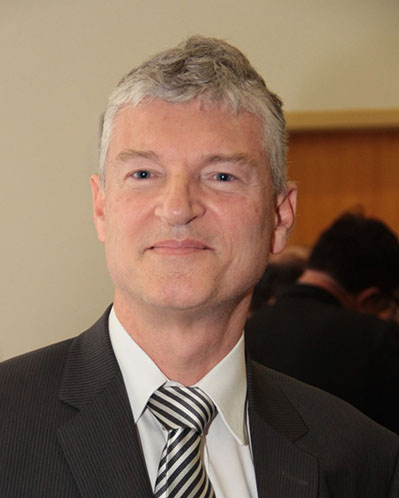
Judge Flavio Allegretti De Campos Cooper is currently employed as a federal appellate labor judge in Brazil. He graduated from the Federal University of Rio de Janeiro School of Law and worked as a lawyer for several years. He became Substitute Judge to the Labor Magistrate of the 2nd Region of São Paulo in 1986. He was then promoted to the position of Presiding Labor Judge of the 1st Board of Conciliation and Judgment of São Jose dos Campos. Later, Judge Cooper became the Presiding Judge of the 3rd Conciliation and Trial Board in that same city, and was then promoted to the position of Appellate Judge. For many years he worked as a university professor and Chair of Civil Procedure. He served as Director of the Magistrate School of the Regional Labor Court, 15th Region, from 2006-2008, and was elected Vice President of the National Council of Labor Magistrate Schools in 2008. From 2008-2010 he served as Magistrate Judge for the Regional Labor Court, 15th Region. Judge Cooper has also completed post-graduate work in civil procedure at the Paulista School of Magistrates and is the published author of Collective Jurisdictional Trusteeship.
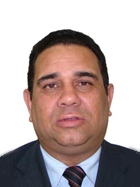
Mr. Gomes de Lima, also known as Samuel Light, is the Co-Founder and President of the Brazilian Association of Religious Freedom and Citizenship (“ABLIRC”), an institution that defends the fundamental rights of religion, conscience, and thought of all people in all possible legal forms. Since its inception, ABLIRC has held a Pan-Latin forum, a national forum, 25 regional forums, and 55 symposia. He is also a legal academic at Diadema/UNIESP Educational Group as well as the Executive Director of Light, the publisher of the book Human Rights and Religious Freedom. As a passionate activist, Mr. Gomes de Lima co-founded the Inter-Religious Forum of the Secretariat of Justice and the Protection of Citizenship of the State of Sao Paulo, Brazil, and led the movement for approval of Bill no. 590/01. He also coordinated both the Religious Freedom Festival, that attracted over 30,000 people June 2006, and the Brazilian Forum of Religious Freedom and Citizenship, that attracted over 500 leaders from very diverse religious groups in June 2006.
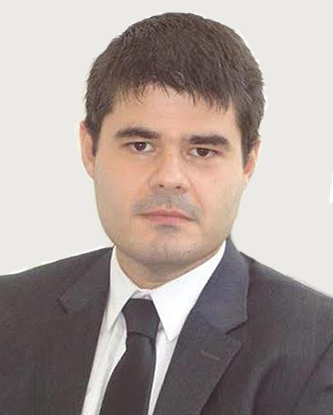
Fábio Carvalho Leite serves as the Deputy Legal Advisor to the Rector of Pontifical Catholic University of Rio de Janeiro, Brazil (PUC-Rio), where he is a professor and coordinator of Constitutional Law. He graduated from PUC-Rio in 1999, and earned a Doctor in Law from Rio de Janeiro State University in 2008. He is member of Constitutional Law Commission of Order of Brazil Lawyers. He is also a Researcher on Productivity at National Research Council (CNPq) with a research project about Free Speech (and Its Limits). His publications include State and Religion: Religious Liberty in Brazil (Juruá 2014), Freedom of Expression and the Right to Honor: New Guidelines to an Old Problem, in Fundamental Rights and Constitutional Jurisdiction, Clemerson Cleve & Alexandre Freire, eds (Revista dos Tribunais 2014), and Declaratory Action of Constitutionality: Expectation, Reality and Some Propositions, Sequência: Federal University of Santa Catarina Law Review 2014.
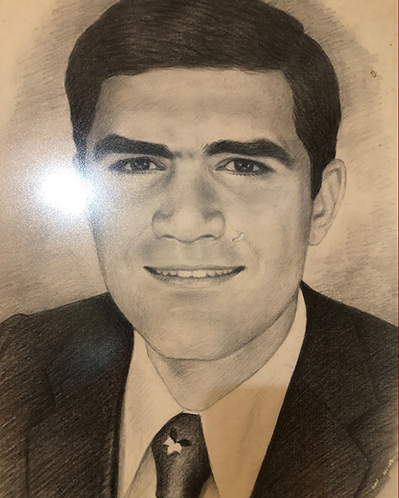
Ricardo Sale has a Bachelor of Laws from Faculdades Metropolitanas Unidas (UNIFMU), and a Master of Social Relations Law/Criminal Procedural Law from Pontifícia Universidade Católica de São Paulo. He is a lawyer and prosecutor for the state of São Paulo. On April 25, 201, he was appointed a judge of the Tribunal of Justice of the State of São Paulo.
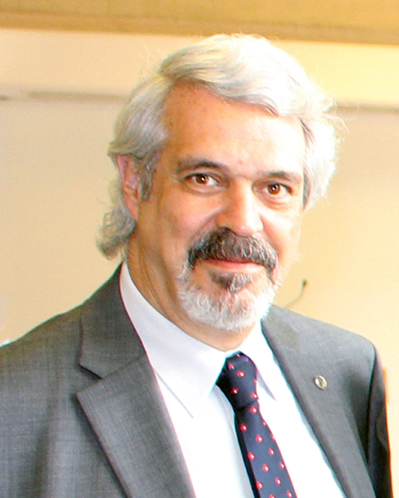
Dr. Juan G. Navarro Floria graduated in law from Pontificia Universidad Católica of Argentina, where he teaches civil law, ecclesiastical law, and law and religion in Latin America. He also earned a PhD in Law from Complutense University (Spain). He is also a lawyer, litigator, and legal advisor in the fields of law and religion. He was Chief Advisor to the Secretariat of Religious Affairs of the Argentine Government, founder, board member, and past president of the Argentine Council of Religious Freedom (CALIR), and also founder and past-president of the Latin American Consortium for Religious Freedom. He is a member of the Academic Advisory Board of the International Center for Law and Religion Studies (ICLRS–BYU), of the National Committee "Justicia y Paz" at the National Conference of Catholic Bishops in Argentina, and founder and member of the Steering Committee of the International Consortium for Law and Religion Studies (ICLARS–Milan). Publications include books, chapters of books, and articles in scientific reviews in Argentina and other countries in America and Europe.
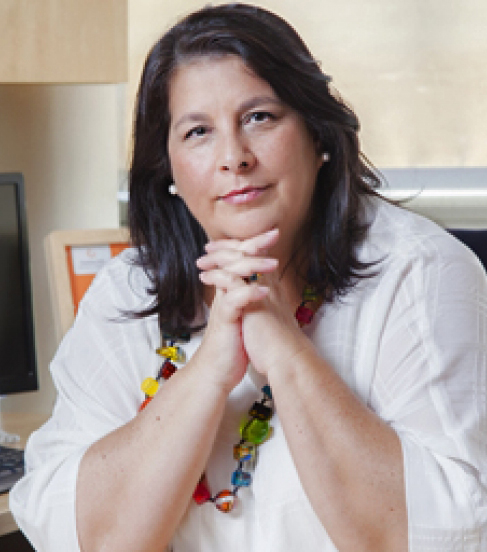
Ana María Celis Brunet is an associate professor in the Faculty of Law, Pontificia Universidad Católica de Chile (UC), where she teaches canon law and law and religion, as well as post graduate courses in different programs. She received her license and doctoral degree in canon law at the Pontificia Università Gregoriana (Rome, Italy) with the dissertation La relevancia canónica del matrimonio civil a la luz de la Teoría general del Acto jurídico, contribución teórica a la experiencia jurídica chilena. Professor Celis is an ecclesiastical lawyer before the Ecclesiastical Court of Santiago. She is Director of El Centro UC Derecho y Religión (the Center for Law and Religion at UC), which began in 2005 as Centro de Libertad Religiosa, a center for studying Church-State matters and promoting religious freedom. She was the secretary and then President (2013-2016) of the Consorcio Latinoamericano de Libertad Religiosa (Latin American Consortium for Religious Freedom). She is President of the International Consortium for Law and Religion Studies (ICLARS). in August 2018 she was appointed President of the National Council of the Chilean Church for the Prevention of Sexual Abuse and Accompaniment of Victims by Pope Francis.
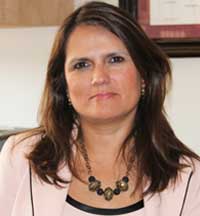
Carmen Dominguez received a Masters in Comparative Law and PhD in Law from the Complutense University of Madrid. She is Professor of Civil Law and Director of the Family Center of the Catholic University of Chile. She has published three books and numerous articles on civil liability, legal theory, Family Law, and Bioethics. She has developed several research projects and domestic and foreign sources. She teaches seminars lectures and conferences in Chile and abroad. She is a practicing lawyer and is referee of the Chamber of Commerce and Alternate Judge at the Court of Appeal of Santiago, Chile.
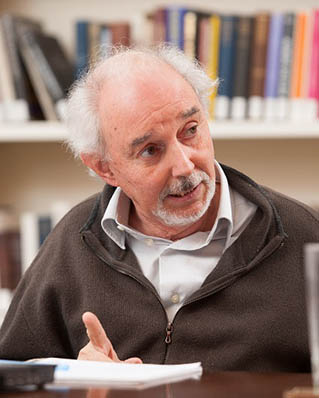
Silvio Ferrari, founder and honorary lifetime president of the International Consortium for Law and Religion Studies (ICLARS), was visiting professor at the University of California (Berkeley), the Institute for Advanced Legal Studies (London), the École Pratique des Hautes Études (Sorbonne, Paris), and the University of Leuven. His publications in English include Law, Religion, Constitution (edited with Cole Durham, Cristiana Cianitto, and Donlu Thayer); Religion in Public Spaces (edited with Sabrina Pastorelli); Law and Religion in the 21st Century (edited with Rinaldo Cristofori); Law and Religion in Post-Communist Europe (edited with Cole Durham and Elizabeth Sewell), Islam and European Legal System (edited with Anthony Bradney). He is a member of the Advisory Council on Freedom of Religion and Belief of the Organization for Security and Co-operation in Europe / Office for Democratic Institutions and Human Rights, member of the International Academy of Comparative Law, a founding editor of the Oxford Journal of Law and Religion, and member of the editorial board of the Ecclesiastical Law Journal. He delivered a Messenger Lecture at Cornell University and received the Distinguished Service Award of the International Center for Law and Religion Studies.
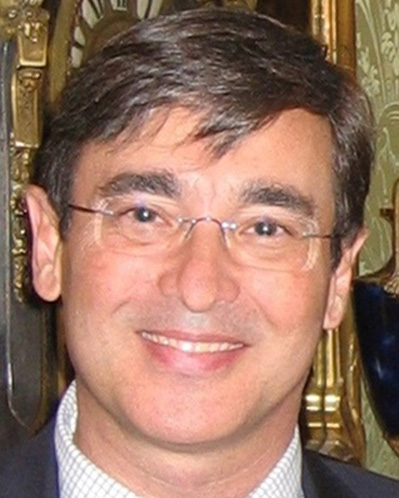
Javier Martínez-Torrón is Professor of Law and Director of the Department of Law and Religion, Complutense University of Madrid and Vice-President of the Section of Canon Law and Church-State Relations of the Spanish Royal Academy of Jurisprudence and Legislation. He is Honorary Foreign Member of the National Academy of Law and Social Sciences of Cordoba, Argentina; a former member of the Organization of Security and Co-operation in Europe/Office for Democratic Institutions and Human Rights Advisory Council for Freedom of Religion or Belief; and a member of the Spanish Advisory Commission for Religious Freedom within the Ministry of Justice. His research on law and religion issues is characterized by a predominant interest in international and comparative law. His writings, published in twenty-three countries and in twelve languages, include twenty books as author, co-author or editor, and more than one hundred essays in legal periodicals or collective volumes. His book Conflictos entre conciencia y ley. Las objeciones de conciencia (2nd ed., in collaboration with R. Navarro-Valls, 2012), contains possibly the most complete study published until now on the issue of conflicts between law and conscience.
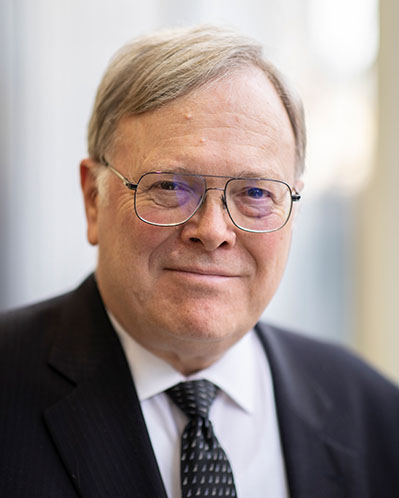
Cole Durham is Founding Director of the International Center for Law and Religion Studies (ICLRS) and the former Susa Young Gates University Professor of Law and at the J. Reuben Clark Law School of Brigham Young University. He is a graduate of Harvard College and Harvard Law School, where he was a Note Editor of the Harvard Law Review and Managing Editor of the Harvard International Law Journal. He has been heavily involved in comparative law scholarship, with a special emphasis on comparative constitutional law. He is a founding Editor-in-Chief of the Oxford Journal of Law and Religion. He served as the Secretary of the American Society of Comparative Law from 1989 to 1994. He is an Associate Member of the International Academy of Comparative Law in Paris—the premier academic organization at the global level in comparative law. He served as a General Rapporteur for the topic 'Religion and the Secular State' at the 18th Congress of the International Academy of Comparative Law, held in July 2010. He served in earlier years as Chair both of the Comparative Law Section and the Law and Religion Section of the American Association of Law Schools. Professor Durham was President of the International Consortium for Law and Religion Studies (ICLARS) from 2011-2016.
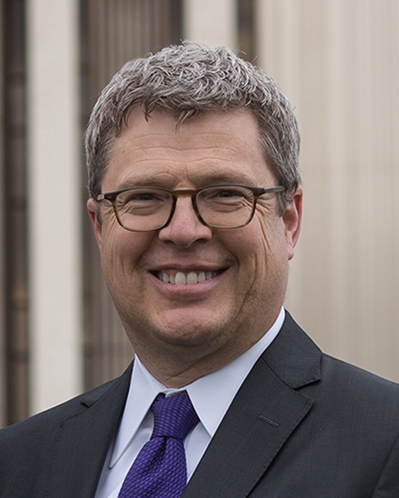
Brett G. Scharffs is Rex E. Lee Chair and Professor of Law and Director of the International Center for Law and Religion Studies at Brigham Young University Law School. He received a BSBA in international business and an MA in philosophy at Georgetown University and, as a Rhodes Scholar, earned a BPhil in philosophy at Oxford. He received his JD from Yale Law School, where he was senior editor of the Yale Law Journal. He is a recurring visiting professor at Central European University in Budapest and at the University of Adelaide Law School. He has for several years helped organize certificate training programs in religion and the rule of law in China and in Vietnam and has taught and helped organize programs at several Indonesian universities on sharia and human rights. Author of more than 100 articles and book chapters, he has made more than 300 scholarly presentations in 30 countries. His casebook, Law and Religion: National, International and Comparative Perspectives (with Cole Durham, 2nd English edition forthcoming 2017), has been translated into Chinese and Vietnamese, with Turkish, Burmese, and Arabic in process. He is author with Elizabeth Clark of Religion and Law in the USA, a 2016 contribution to Wolters Kluwer’s International Encyclopaedia of Laws.
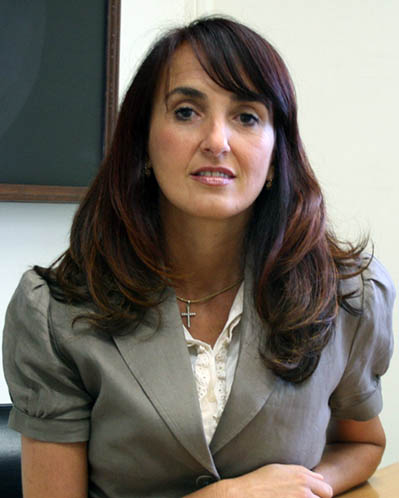
Carmen Asiaín Pereira serves as a senator in the Parliament of Uruguay. She received a doctor in law and social sciences from the University of the Republic and is a professor of law and religion, graduate studies program, at the University of Montevideo and a professor of law and religion and of health law, graduate program, Facultad de Teología del Uruguay Monseñor Mariano Soler. She is immediate past president of the Latin American Consortium for Freedom of Religion and Belief. She has participated as a panelist on religious liberty and law and religion at international conferences, and at the UN, and has published papers internationally on many topics. Dr. Asiaín is a member of the Judeo-Christian Fellowship and a founding member and vice-president of the Instituto de Derecho Religioso del Estado (IDRE), Uruguay, and of the International Advisory Council, Canon Law and Ecclesiastical Law General Journal, IUSTEL. As an attorney accredited by the National Ecclesiastical Court (Uruguay and Argentina) and a partner at the law firm of Pollak & Brum, she is a litigator in matrimonial canon law. She is an advisor and litigator in cases involving freedom of conscience and religion or belief against the State.
